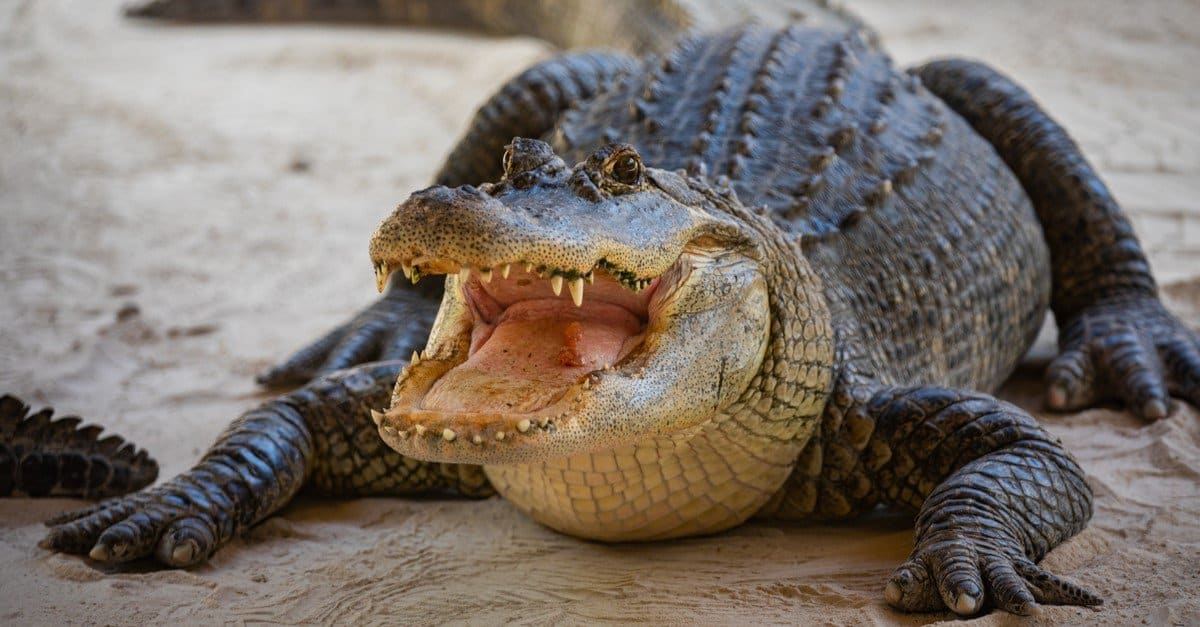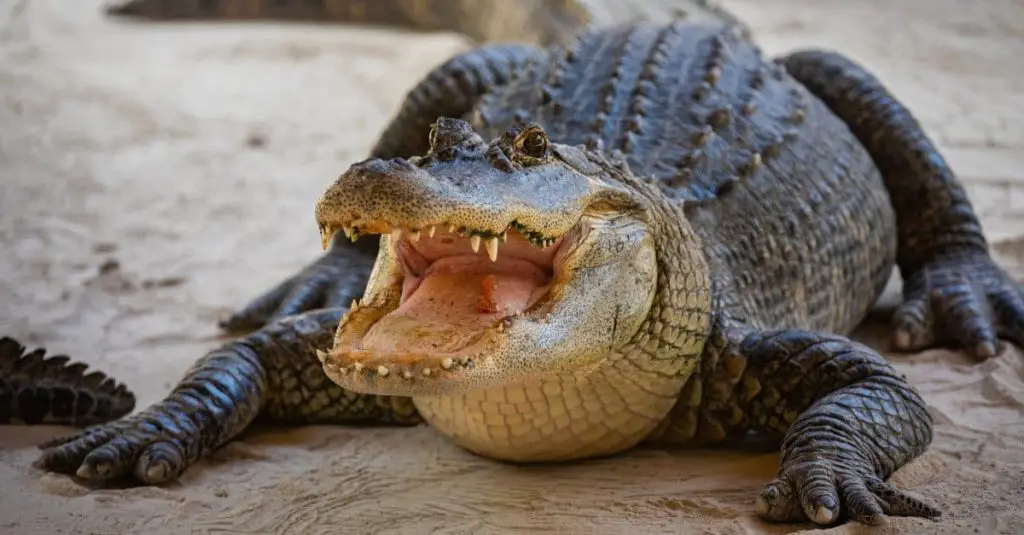Alligators are fascinating creatures that have been around for millions of years. Despite being fearsome predators, there is still a lot of mystery surrounding their behavior, particularly when it comes to their interactions with humans. One of the most common questions people ask is, “Will alligators eat humans?” This topic has been the subject of numerous studies and research, and the answer may surprise you.
While alligators are known to be dangerous predators, the truth is that they don’t actively seek out humans as prey. In fact, most alligator attacks occur when humans inadvertently get too close to their habitat or attempt to feed them. However, it’s important to remember that alligators are wild animals and should be treated with respect and caution at all times. In this article, we’ll take a closer look at the relationship between alligators and humans, and explore what you can do to stay safe in alligator country.
Alligators have been known to attack and eat humans, but it is extremely rare. According to the Florida Fish and Wildlife Conservation Commission, there have been 401 documented alligator attacks on humans in Florida since 1948, with 25 resulting in fatalities. However, the likelihood of being attacked by an alligator is very low, and most incidents occur when people are swimming in or near alligator habitats.

Will Alligators Eat Humans?
Alligators are known to be one of the most dangerous and aggressive creatures in the world, but do they really pose a threat to humans? In this article, we’ll explore the relationship between alligators and humans and answer the question on everyone’s mind: will alligators eat humans?
The Diet of Alligators
Alligators are carnivorous reptiles that feed on a variety of prey, including fish, birds, mammals, and other reptiles. However, their diet can vary depending on their size, location, and availability of food. Young alligators usually feed on insects, snails, and small fish, while adult alligators can consume larger prey, such as deer, wild boar, and even sharks.
Despite their reputation as fierce predators, alligators rarely attack humans. According to the Florida Fish and Wildlife Conservation Commission, there have been 401 documented alligator attacks in Florida since 1948, with 25 resulting in fatalities. This might seem like a lot, but considering that there are over 1.3 million alligators in Florida alone, the odds of being attacked by one are relatively low.
Why Alligators Attack Humans
Alligators are not usually aggressive towards humans, but there are some situations where they may attack. One of the most common reasons for an alligator to attack a human is if they feel threatened or cornered. Alligators are protective of their territory and will defend it if they feel their space is being invaded.
Another reason for an alligator to attack a human is if they mistake them for prey. Alligators have poor eyesight, so they may mistake a person swimming or wading in the water for a smaller animal, such as a fish or a turtle. In these cases, the alligator may try to grab the person and drag them into the water.
How to Avoid Alligator Attacks
The best way to avoid an alligator attack is to stay away from areas where alligators are known to be present. This includes freshwater bodies such as lakes, rivers, and swamps. If you must be in these areas, it’s important to be aware of your surroundings and take precautions.
Some tips for avoiding alligator attacks include:
– Never feed alligators or approach them in the wild
– Stay away from the water’s edge, especially at night
– Keep pets on a leash and away from the water
– Do not swim in areas where alligators are known to be present
– If you spot an alligator, keep a safe distance and do not approach it
The Benefits of Alligators
Despite their fearsome reputation, alligators play an important role in their ecosystems. They help to control populations of prey animals, such as fish and mammals, and their burrows provide shelter for other animals during harsh weather conditions. Alligators are also valued for their hides, which are used to make leather goods.
Alligators Vs. Crocodiles
Alligators and crocodiles are often confused with each other, but there are some key differences between the two. Alligators have a wider, U-shaped snout, while crocodiles have a longer, V-shaped snout. Alligators also have a more rounded snout, while crocodiles have a more pointed snout.
Another difference between alligators and crocodiles is their habitat. Alligators are found in freshwater habitats, such as lakes and swamps, while crocodiles can be found in both freshwater and saltwater habitats, such as rivers and estuaries.
Alligator Attacks Around the World
While alligator attacks are most commonly associated with Florida, they can occur in other parts of the world as well. In Australia, for example, saltwater crocodiles are known to attack humans who venture too close to their habitat. In Africa, Nile crocodiles are responsible for hundreds of attacks on humans each year.
The Future of Alligators
Alligators are a keystone species, meaning that they play a crucial role in their ecosystems. However, their populations have been threatened by habitat loss, pollution, and hunting. In the United States, alligators were once listed as an endangered species, but their populations have since recovered and they are now considered a conservation success story.
Despite their fearsome reputation, alligators are an important part of our natural world. By taking precautions and respecting their habitats, we can coexist with these fascinating creatures and appreciate their role in our ecosystems.
Frequently Asked Questions
Here are some common questions people have about alligators and their behavior.
What do alligators eat?
Alligators are carnivorous and primarily eat fish, turtles, and small mammals. They also eat birds, snakes, and other reptiles. Alligators may attack and eat larger prey, such as deer or wild boar, but this is less common.
Alligators have been known to attack humans, but this is rare and usually happens when humans encroach on their territory. If you encounter an alligator in the wild, it’s important to keep a safe distance and avoid feeding or approaching them.
Do alligators attack humans?
Alligators have been known to attack humans, but this is rare. According to the Florida Fish and Wildlife Conservation Commission, there have been 401 documented alligator attacks on humans in Florida since 1948, with 25 resulting in fatalities. Alligators are more likely to attack if they feel threatened or if they are protecting their young.
To avoid alligator attacks, it’s important to be aware of your surroundings and avoid swimming in areas where alligators may be present. If you encounter an alligator, keep a safe distance and do not approach or feed them.
Can alligators climb fences?
Alligators are not known for their climbing abilities and typically do not climb fences. However, they are excellent swimmers and can easily navigate through water to access new areas.
If you live in an area with alligators, it’s important to secure your property with a fence and keep all doors and windows closed to prevent alligator entry. It’s also important to avoid leaving food or water sources outside, as this may attract alligators to your property.
How fast can alligators run?
Alligators are surprisingly fast on land and can run up to 11 miles per hour in short bursts. They are also excellent swimmers and can reach speeds of up to 20 miles per hour in the water.
If you encounter an alligator in the wild, it’s important to keep a safe distance and avoid running. Alligators are attracted to movement and may mistake a fleeing person for prey.
How long do alligators live?
Alligators have a lifespan of up to 50 years in the wild, although some may live longer. The oldest recorded alligator in the wild was over 80 years old.
Alligators grow throughout their lives and can reach lengths of up to 14 feet. As they age, their size and aggression may increase, making it even more important to avoid approaching or disturbing them in the wild.
Why Do American Alligators Attack People but American Crocodiles Don’t?
In conclusion, the question of whether alligators will eat humans is not a straightforward one. While alligators have been known to attack humans in certain circumstances, they do not typically view humans as prey. However, it is important to remember that alligators are wild animals and should be treated with caution and respect.
It is crucial to take precautions when in areas where alligators may be present, such as staying away from the water’s edge and not feeding them. Additionally, if you do encounter an alligator, it is best to keep a safe distance and not approach or antagonize them.
Overall, while alligator attacks on humans are relatively rare, it is still important to be aware of the potential risks and take appropriate measures to stay safe. By respecting these powerful creatures and their habitats, we can coexist peacefully with these fascinating and important members of the animal kingdom.


